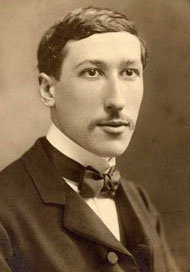The Primordial Tradition is an original subject, to say the least. Little known to the general public, the subject only fascinates fairly intellectual circles, sometimes authentically, sometimes relatively cultured. The layman can only feel intimidated by what appears to be a deluge of metaphysical speculation, intelligible at the price of a major scholarly effort. The other major problem is that a series of amateurs, misguided racists, have used the vocabulary and partly confiscated it, which can give certain terms a connotation far removed from their intended meaning. Especially when it comes to talking about a « superior race » of blond dolphins. These few lines are not intended for specialists, but rather for those who, like me, discovered the subject not so long ago, or who are just discovering it.
The idea of the Primordial Tradition is to assert that all religions described as ‘traditional’ have, over and above the revelations that are specific to them, a common origin. In this case, a first, original revelation, from which these spiritualities derive. This assertion is based on palaeo-epigraphy and the comparative study of mythologies and symbolisms.
This primordial revelation has a precise geographical origin. It would have taken place in the Arctic, at a time when the Arctic people, better known as the Hyperboreans, occupied it. According to Hermann Wirth (1881-1981), a Dutch philologist who believed he had found not only the alphabet but also the religiosity of this people, the Hyperboreans left their homeland, conventionally called « Thule », because of a cataclysm, a « great winter », the memory of which many peoples, such as the Persians, Celts and Hindus, have preserved through their mythology and sacred texts. Alexandre Douguine has devoted a book to the so-called « Hyperborean theory », published this year by Ars Magna. In it, he popularises and comments on Hermann Wirth’s ideas.
So why take an interest in this subject? The answer depends on the audience itself, though…
For believers, there will be confirmation of the sacredness of their faith, but also a bridge to build between traditional spiritualities. This dialogue will be of interest to those who believe that a « Front of Faith » is legitimate and desirable. This perspective, necessary to avoid any new war of religion or, more generally, any division on the sole basis of faith, can only displease the fanatics, those who belong to the « Infâme », as a certain Voltaire spoke of. These same believers will also find in it an argument against totally revolutionary or ‘progressive’ spiritualities. Other believers, if they are convinced and have the courage, could question their own faith in order to conform to a different tradition, like René Guénon, who went from Freemasonry to Islam, which he felt was closer to the original Hyperborean religion. Believers will no doubt also find confirmation of what they see as the emptiness of atheism.
Believers and non-believers alike can agree here on a spiritual conception of existence, spiritual not necessarily in the supernatural sense, since Hyperborean religiosity has no dogma. It justifies a « solar » conception of the world, as Julius Evola asserts in his book Révolte contre le monde moderne (Revolt against the Modern World), published in 1934, in which he develops the idea that human societies have been in constant decline since the fall of Hyperborea, thus justifying a conception of the world that is cyclical rather than declinist. If we are to believe the Baron, we are even at the end of the Iron Age, which he refers to here, using a term from Hindu cosmogony, as the ‘Kali Yuga’, the last stage of a great cycle that will be followed by the great return of the Golden Age, the Hyperborean Age.
The idea of a primordial Tradition can be seen as an egalitarian conception of cultures, vindicating Alain de Benoist’s assertion that there can be no comparison between the world’s cultures and identities, since there is no universal criterion for judging them. It also encourages respect for other civilisations and for women, whose sacred role in the primordial Hyperborean tradition is commented on by Wirth.
Aleksandr Dugin, on the basis of Hermann Wirth’s theses, was able to assert that: « We are not obliged to accept the theory of the Thule cultural circle unconditionally, but an evaluation of its interpretative potential is necessary ».
I believe that there is another interest in studying these theses: the Hyperborean civilisation as Wirth sees it is a civilisation whose language, environment and entire existence are based on a conception of Harmony and the elevated Sacred, alien to any materialistic conception of existence. In this reconstituted spirituality, there will be no prohibitions, no original sin, no jealous Lord. There was indeed a ‘clergy’, made up exclusively of women according to the Dutch scholar, though this did not mean that it was a matriarchy. The Hyperborean civilisation is absolutely and radically incompatible with the ‘modern world’. Hermann Wirth, that still little-known scholar, said that those of our contemporaries who failed to abandon the cult of ‘Mammon’ would never find the ‘Light’.
Let’s make sure we (re)find it, by taking a real interest in the culture of the Hyperboreans.
Vincent Téma, 25/08/2023.
